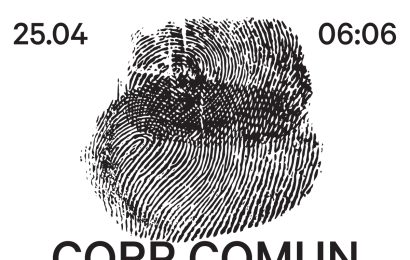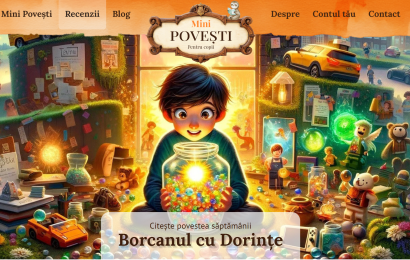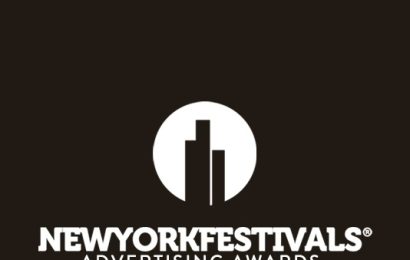Magda Ropotan on Design Thinking, beyond the hype
Magda Ropotan is, alongside Madalina Vilau, the co-founder of the Design Thinking Forum, a forward thinking event that is celebrating innovation and forward ideas, helping companies to get fit for the 21st century challenges.
Magda co-founded Design Thinking Society, a boutique consultancy for design driven innovation, and FutureStation, a consultancy business that supports organizations in exploring trends and future scenarios. Previously, Magda had a successful international career in Honeywell, Genpact and IKEA.
- How the business community reacted when you first launched The Design Thinking Forum? Was the audience ready to receive the info and to apply it?
We started designing the concept of the conference in the spring of 2017. At that time, I was already facilitating innovation projects in Romania for 2 years. I got to know some other practitioners of Design Thinking and a small but passionate community of Design Thinkers started to form. We even dared to do a common project together on a civic issue. People’s interest was way beyond our expectations. This feedback got us thinking that there might be a world out there whom we might help if they only knew about Design Thinking and its impact. With this thought, I invited my old friend and mentor, Madalina Vilau, to partner with me in this initiative. Her own enthusiasm with Design Thinking and her team’s experience in organizing successful business events, made us progress with the concept very fast.
To create the conference, obviously, we used Design Thinking tools, and from the very beginning we involved our potential audience. Design Thinking enthusiasts, experienced practitioners, entrepreneurs and business experts interested in innovation and transformation brought their creativity and inspiration together in building the backbone of the event. Later on, some of these wonderful people from the community became my business partners and we co-founded together the Design Thinking Society.
Very soon after launching the event, we understood that there was not only our passion that drove us to create it: tickets were sold out very fast, as we planned it for only 100 attendees. Many people were disappointed, therefore two months before the conference we decided to move the event to a larger location and to bring extra tickets on the table. Those extra tickets sold out as well, in only several days. That was a loud and clear message from the business community that it was ready to find out more about Design Thinking and the way it can help their companies grow and thrive.
- What have you learned from the interaction with the audience in the first two editions and how did you build on that, for the third one?
We dedicated the first edition to introducing the subject to the Romanian audience. We had a mix of Romanian and international speakers approaching Design Thinking topic from their personal experience. As the audience was already up to speed with the concept, we felt that the second edition should showcase some real-life examples from the business world. Thus, we invited speakers that shared stories and examples of projects from their organisations, such as redesigning a process, product or service with Design Thinking. The impact was incredible – the audience loved Markus Edgar Hormess, a renowned trainer and practitioner and the co-author of „This is Service Design Doing”, one of the best books on Service Design Thinking concept and usability.
Inviting well-known authors ready to address business community topics became a must-do for our event, as the third edition aims at going more in-depth into the science of Design Thinking. Jeanne Liedtka, our keynote speaker for this year’s forum, will share insights from her extensive experience both in the business and the academic fields. She has recently published „Why Design Thinking works”, the results of an in-depth study of the discipline that embraces her decade-long dedicated work in the field. Other speakers invited to our third edition will take a deep dive into the diverse applicability of Design Thinking in challenging fields such as peace negotiations, exponential transformation and even in the world of Big4 advisory services.
- How do you select your speakers? Which are the success granted criteria?
Due to various business settings we are working in, we have the chance to interact with a plethora of amazing people we are partnering with in our projects or people whom we came across in our local and international Design Thinking communities. We have already raised the bar high, therefore we are always striving to bring up on the stage of our Design Thinking Forum the best, most experienced individuals, with confirmed results and inspiring success stories. Design Thinking permeates so many industries and domains, thus we are fortunate to choose from a great community of people out there with amazing case studies and insights.
- Any examples of local companies applying Design Thinking principles with great results?
In our previous editions, teams of several international companies operating in Romania such as Orange, Carrefour, Allianz-Tiriac, NN, Holcim, BRD Societe Generale, have been invited on the stage to share their successful local experiences with Design Thinking projects. The Romanian IT company Qualitance was also a special guest to one of our editions. There are other companies in Romania that are working with Design Thinking and we are definitely going to have them on stage for future editions, as we are true believers in the power and impact of the community.
This year, Google Romania in partnership with Design Thinking Society, ran one-day introductory workshops for 1000 entrepreneurs across Romania. We do believe that this is a great start for Romanian companies to explore investing in Design Thinking as an efficient set of tools and mindsets to develop their businesses.
- How do you see the Design Thinking impact on local companies, in 3-5 years from now ?
The most amazing thing about Design Thinking is that it encourages a change-oriented mindset above anything else. Companies that embrace it dare to experiment more and are navigating change and complexity with much more agility and relentlessness. The perspective of building an innovative business culture encourages us to contribute to a strong community of local intrapreneurs and entrepreneurs able to design future-ready solutions for our country and beyond.







